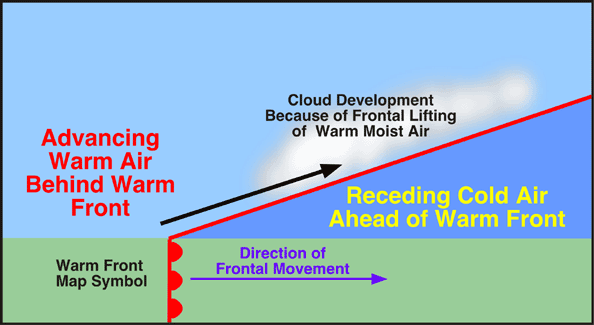Meteorology B
-
bubblebrian
- Member

- Posts: 38
- Joined: Sun May 09, 2010 10:36 am
- Division: B
- State: WI
- Has thanked: 0
- Been thanked: 0
Re: Meteorology B
on the rules it said " similar regional patters", what does it mean?
do we have to know things like derechos or other things?
do we have to know things like derechos or other things?
Wisconsin Hamilton MS!!!
Regionals- first on BP, DD, weather
State-
Bio-process- Sixth
Disease detectives- Third
meteorology- first
PT- eleventh
ED- fourth
team- first
Nationals-
Meteorology: Third!!!
Bio-process lab- ninth
Disease Detectives: Twelfth
Experimental Design- Eighteenth
PT: 34
Regionals- first on BP, DD, weather
State-
Bio-process- Sixth
Disease detectives- Third
meteorology- first
PT- eleventh
ED- fourth
team- first
Nationals-
Meteorology: Third!!!
Bio-process lab- ninth
Disease Detectives: Twelfth
Experimental Design- Eighteenth
PT: 34
-
FueL

- Member

- Posts: 410
- Joined: Sun Mar 07, 2010 12:53 pm
- Division: C
- State: NY
- Has thanked: 0
- Been thanked: 0
Re: Meteorology B
Yup, basically. Things like nor'easters and valley/mountain breezes.bubblebrian wrote:on the rules it said " similar regional patters", what does it mean?
do we have to know things like derechos or other things?
ornithology, forestry, entomology, triple E, green generation, water quality, dynamic planet (lakes & rivers), awesome aquifers, meteorology, robot arm, write it do it. :)
A cone of depression occurs when you drop your scoop of ice cream on the ground on a hot summer day.
-
zyzzyva980

- Admin Emeritus

- Posts: 1539
- Joined: Wed Nov 18, 2009 12:59 pm
- Division: Grad
- State: IA
- Has thanked: 0
- Been thanked: 0
Re: Meteorology B
Ladies and gents, there has been/will be/is a big severe storm outbreak in the plains today, specifically OK,TX, KS, MO, and NE. If you want to start studying for Severe Storms, today is the day to do it. The thunder is already starting to roll in at my location.
Olathe North HS, 2011-2013 | National Runner-Up, Sounds of Music (2012)
Never lose the joy of competing in the pursuit of winning
Never lose the joy of competing in the pursuit of winning
Resources
Site Help: FAQ & IRC
Event Help: [wiki][/wiki] & Image Gallery
Social Networks: scioly.org on Facebook & Twitter
Site Help: FAQ & IRC
Event Help: [wiki][/wiki] & Image Gallery
Social Networks: scioly.org on Facebook & Twitter
-
brobo

- Exalted Member

- Posts: 445
- Joined: Wed Apr 08, 2009 2:44 pm
- Division: C
- State: TX
- Has thanked: 0
- Been thanked: 0
Re: Meteorology B
Almost a week later, and we're getting some heavy thunderstorms here (mainly yesterday) but we looked at the Weather Channel, and it says that we could get rain a little bit every day this week!  This is pretty strange for us here in this part of Texas, so is this what you were talking about zyzzyva?
This is pretty strange for us here in this part of Texas, so is this what you were talking about zyzzyva?
 --Texas!
--Texas!brobo's Userpage
"Let's put all our differences behind us, for science. You monster."
Ubuntu is awesome.
-
zyzzyva980

- Admin Emeritus

- Posts: 1539
- Joined: Wed Nov 18, 2009 12:59 pm
- Division: Grad
- State: IA
- Has thanked: 0
- Been thanked: 0
Re: Meteorology B
Yeah, except for us in Kansas it's not "strange" at all. It's going to rain today again here.
Olathe North HS, 2011-2013 | National Runner-Up, Sounds of Music (2012)
Never lose the joy of competing in the pursuit of winning
Never lose the joy of competing in the pursuit of winning
Resources
Site Help: FAQ & IRC
Event Help: [wiki][/wiki] & Image Gallery
Social Networks: scioly.org on Facebook & Twitter
Site Help: FAQ & IRC
Event Help: [wiki][/wiki] & Image Gallery
Social Networks: scioly.org on Facebook & Twitter
-
bubblebrian
- Member

- Posts: 38
- Joined: Sun May 09, 2010 10:36 am
- Division: B
- State: WI
- Has thanked: 0
- Been thanked: 0
Re: Meteorology B
Hey nationals is in a few days and I still need some help... 
(especially in warm fronts) When you look at a surface weather map and look at the fronts, does the front symbol mean the beginning of the front where the first winds are (the "tip" of the front), or is it at the end of the front, where it totally becomes an air mass, or somewhere in between?
Thanks!
(especially in warm fronts) When you look at a surface weather map and look at the fronts, does the front symbol mean the beginning of the front where the first winds are (the "tip" of the front), or is it at the end of the front, where it totally becomes an air mass, or somewhere in between?
Thanks!
Wisconsin Hamilton MS!!!
Regionals- first on BP, DD, weather
State-
Bio-process- Sixth
Disease detectives- Third
meteorology- first
PT- eleventh
ED- fourth
team- first
Nationals-
Meteorology: Third!!!
Bio-process lab- ninth
Disease Detectives: Twelfth
Experimental Design- Eighteenth
PT: 34
Regionals- first on BP, DD, weather
State-
Bio-process- Sixth
Disease detectives- Third
meteorology- first
PT- eleventh
ED- fourth
team- first
Nationals-
Meteorology: Third!!!
Bio-process lab- ninth
Disease Detectives: Twelfth
Experimental Design- Eighteenth
PT: 34
-
bubblebrian
- Member

- Posts: 38
- Joined: Sun May 09, 2010 10:36 am
- Division: B
- State: WI
- Has thanked: 0
- Been thanked: 0
Re: Meteorology B
Also, I need to know:
In the Northern Hempishere, do winds usually rotate clockwise or counterclockwise in warm fronts? How about in cold fronts? How about hurricanes?
Also, is it possible for a warm front to overtake a cold front? (i don't think so, but i'm not sure)
How would I know which clouds are which in a Stuve Diagram?
In the Northern Hempishere, do winds usually rotate clockwise or counterclockwise in warm fronts? How about in cold fronts? How about hurricanes?
Also, is it possible for a warm front to overtake a cold front? (i don't think so, but i'm not sure)
How would I know which clouds are which in a Stuve Diagram?
Wisconsin Hamilton MS!!!
Regionals- first on BP, DD, weather
State-
Bio-process- Sixth
Disease detectives- Third
meteorology- first
PT- eleventh
ED- fourth
team- first
Nationals-
Meteorology: Third!!!
Bio-process lab- ninth
Disease Detectives: Twelfth
Experimental Design- Eighteenth
PT: 34
Regionals- first on BP, DD, weather
State-
Bio-process- Sixth
Disease detectives- Third
meteorology- first
PT- eleventh
ED- fourth
team- first
Nationals-
Meteorology: Third!!!
Bio-process lab- ninth
Disease Detectives: Twelfth
Experimental Design- Eighteenth
PT: 34
-
gyourkoshaven

- Member

- Posts: 459
- Joined: Mon Apr 14, 2008 12:16 pm
- Division: C
- State: PA
- Has thanked: 0
- Been thanked: 0
Re: Meteorology B
Strath Haven MS:
2008: Regionals-3, States-5
2009: Regionals-2, States-4
2010: Regionals-1, States-2, Nationals-19
2011 (Co-captain): Regionals-1, States-1, Nationals-11
Nationals: Aquifers-37, Compute This-13, Dynamic Planet-25, Ecology-6, Experimental Design-7, Junkyard-33
Moving to C...
2008: Regionals-3, States-5
2009: Regionals-2, States-4
2010: Regionals-1, States-2, Nationals-19
2011 (Co-captain): Regionals-1, States-1, Nationals-11
Nationals: Aquifers-37, Compute This-13, Dynamic Planet-25, Ecology-6, Experimental Design-7, Junkyard-33
Moving to C...
-
brobo

- Exalted Member

- Posts: 445
- Joined: Wed Apr 08, 2009 2:44 pm
- Division: C
- State: TX
- Has thanked: 0
- Been thanked: 0
Re: Meteorology B
Ok, um...bubblebrian wrote: (especially in warm fronts) When you look at a surface weather map and look at the fronts, does the front symbol mean the beginning of the front where the first winds are (the "tip" of the front), or is it at the end of the front, where it totally becomes an air mass, or somewhere in between?
A front is an imaginary line between hot air and cold air. The hot air and cold air are like big huge sections of air. The front itself is not an object. Its just a highlight of the boundry between these two sections of air. The lines show in which direction the section of air is moving.
So if you come across a question that asks you to draw the fronts, look for dramatic differences in temperature over a very short distance. The area in between is the front. You just need to decide which is moving, if either of them. You then draw the line there, in the direction that its moving. If the cold air is moving, its a cold front, and if the warm air is moving then its a warm front. I hope that makes sense...
Warm fronts and cold fronts have nothing to do with it. I have some trouble with that principal too, but what you are looking for is high and low pressure systems. In the northern hemispher, winds blow clockwise around a high pressure system. Yes, high pressure systems are usually associated with colder temperatures, but a cold front is like an imaginary boundry, not a system. Hurricanes follow the same idea. They spin counterclockwise in the norhtern hemispher, and clockwise in the souther hemisphere.bubblebrian wrote: In the Northern Hempishere, do winds usually rotate clockwise or counterclockwise in warm fronts? How about in cold fronts? How about hurricanes?
I'm not sure, but I don't see why not. When a cold front takes over a warm front, is it called an occulated front, but I don't know if it works the same in reverse.bubblebrian wrote: Also, is it possible for a warm front to overtake a cold front? (i don't think so, but i'm not sure)
Stuve diagram's won't show you the types of clouds, just like Meteograms. You would need to look at a station ball or a sample of METAR (not all METAR code contains this information, however) to find the types of clouds.bubblebrain wrote: How would I know which clouds are which in a Stuve Diagram?
But yes, gyourkoshaven is right, most of this information is found in the Meteorology Wiki. I know I wasn't sure about using the [wiki][/wiki] at first, but its a safe place. Its completely designed and made by people on this forum, and is closely moderated by robotman09 and starpug, along with the other mods, so all the information found there is very reliable.
Good luck!
EDIT: Yeah, FueL is right, I made a mistake, but I went ahead and fixed it. Sorry!
Last edited by brobo on Mon May 17, 2010 12:32 pm, edited 2 times in total.
 --Texas!
--Texas!brobo's Userpage
"Let's put all our differences behind us, for science. You monster."
Ubuntu is awesome.
-
FueL

- Member

- Posts: 410
- Joined: Sun Mar 07, 2010 12:53 pm
- Division: C
- State: NY
- Has thanked: 0
- Been thanked: 0
Re: Meteorology B
A few things added on to robodude's response:

Hope this helped, and good luck at nationals.
I think you meant winds blow clockwise around a high pressure and counterclockwise around a low. You shouldn't need to know hurricanes, as it's everyday weather. Robodude is correct about their rotations; however, hurricanes are called cyclones in the Southern Hemisphere.robodude wrote:Warm fronts and cold fronts have nothing to do with it. I have some trouble with that principal too, but what you are looking for is high and low pressure systems. In the northern hemispher, winds blow counterclockwise around a high pressure system. Yes, high pressure systems are usually associated with colder temperatures, but a cold front is like an imaginary boundry, not a system. Hurricanes follow the same idea. They spin counterclockwise in the norhtern hemispher, and clockwise in the souther hemisphere.
There is no way of knowing for sure. However, you can make an educated guess if the diagram includes altitudes with the millibar measurements.bubblebrian wrote:How would I know which clouds are which in a Stuve Diagram?
I don't think it's possible, actually, since cold fronts move much faster than warm fronts. When a cold front overtakes a warm front though, it becomes an occluded front.bubblebrian wrote:Also, is it possible for a warm front to overtake a cold front? (i don't think so, but i'm not sure)
I'm not sure what you mean, but the front is symbol is always located where the two air masses meet at ground level. In this picture, you can see the warm front is actually behind some of the warm air that has risen above the cold air:bubblebrian wrote:When you look at a surface weather map and look at the fronts, does the front symbol mean the beginning of the front where the first winds are (the "tip" of the front), or is it at the end of the front, where it totally becomes an air mass, or somewhere in between?

Hope this helped, and good luck at nationals.
ornithology, forestry, entomology, triple E, green generation, water quality, dynamic planet (lakes & rivers), awesome aquifers, meteorology, robot arm, write it do it. :)
A cone of depression occurs when you drop your scoop of ice cream on the ground on a hot summer day.

